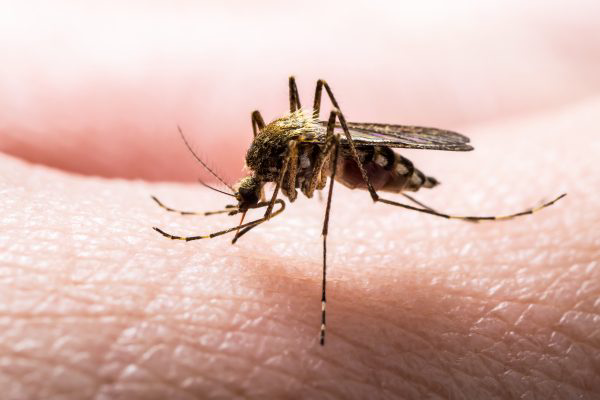
Dengue fever (pronounced DEN-gay FEE-ver) is a painful mosquito-borne virus that is spreading rapidly throughout the world. According to the Centers for Disease Control (CDC), by June 24, 2024, over 9.7 million cases of dengue fever were reported throughout the Americas. That is more than double the cases seen in all of 2023.
Also known as “break-bone fever,” dengue fever flourishes in tropical and sub-tropical climates, making regions like Hawaii, Southern Florida, the Gulf Coast, the Southeastern United States, and parts of Southern California particularly susceptible to outbreaks. People living in or traveling to these locations or popular international destinations like Rio de Janeiro, São Paulo, Bangkok, New Delhi, and Cancún must guard against infection. It is transmitted by Aedes mosquitoes.
How Dengue Fever Spreads & Why You Don’t Develop Immunity
Dengue fever spreads to humans primarily through the bites of infected female Aedes aegypti or Aedes albopictus mosquitoes. These mosquitoes feed on human blood typically by day but also at night so they can lay eggs to breed more biters.
There are actually four closely related viruses known as dengue fever. All are transmitted by blood-sucking female mosquitoes. If you contract and recover from one dengue virus, you develop some immunity to that same virus but have no protection against the other three. Once you have had dengue fever, you are more likely to experience severe and possibly fatal symptoms the next time you get it.
Symptoms of Dengue Fever
Most people who contract dengue fever experience only minor symptoms that resolve within one to two weeks. For others, dengue is a painful and debilitating experience.
Dengue fever symptoms typically occur roughly four to 10 days following infection, including symptoms such as:
- High fever (104°F/ 40°C)
- Extreme headaches
- Severe pain in muscles, bones, and joints
- Pain behind the eyes
- Nausea
- Vomiting
- Fatigue
- Swollen glands
- Rash appears two to five days after the fever’s onset
- Mild bleeding (nose bleeds, bleeding gums, bruising)
Severe Dengue Fever Symptoms
For some people, mild dengue fever symptoms are mistaken for the flu. However, serious complications like dengue hemorrhagic fever (DHF) with more severe symptoms can develop, including:
- Severe stomach pain
- Persistent vomiting
- Systemic bleeding, such as from the nose, gums, internal organs, and under the skin
- Trouble breathing or catching breath
- Severe fatigue
- Restlessness and irritability
In extreme cases, Dengue hemorrhagic fever leads to shock and death. Thankfully, it is rare. People with weak immune systems and those getting infected with dengue a second time are at greatest risk from severe dengue fever symptoms and DHF.
Dengue Fever Treatment
We have no treatment or practical cure for dengue fever. The symptoms can typically be managed at home, though severe cases require hospitalization. Keep well hydrated by drinking plenty of fluids. Rest and treat pain with acetaminophen. Avoid using anti-inflammatory drugs if you suspect dengue, as they can increase the risk of bleeding. It’s important to seek medical treatment and get the guidance of a trusted doctor if you suspect you or someone else has Dengue Fever.
How to Reduce The Risk of Dengue Fever
Although incidents of dengue fever are rising rapidly worldwide, there are just two ways to reduce the risk of contracting it. The best way to prevent dengue fever is through mosquito control and avoiding getting bitten. The other way is through the dengue vaccine, which has very limited availability.
Mosquito Protection
Learning how to prevent dengue fever is similar to preventing Zika, West Nile, and other mosquito-borne diseases — it’s all about avoiding mosquito bites.
Effectively combating mosquitoes is a multi-step process. It requires making your yard and home less attractive to mosquitoes by eliminating all sources of standing water and keeping the grass cut short. Wear loose-fitting, light-colored protective clothing such as long sleeves, long pants, socks, and shoes. Additionally, add mosquito-repelling plants to your garden or wear insect repellants. Professional outdoor pest control services are also vital to help protect your family from itchy bites and mosquito-borne illnesses.
Mosquito control works alongside your efforts to deny the biters essential breeding grounds. It requires an all-hands-on-deck approach to protect yourself, your family, and even your pets from these pests. Remember that every itchy mosquito bite leads to more biting mosquitoes! (Blech!) Even when you don’t get dengue fever or Zika from a mosquito bite, the dirty, nasty things inject you with their saliva and feed on your blood!
Dengue Vaccine
There is only one vaccine available in the U.S. — Dengvaxia®. It is approved only for children ages nine through 16 who have been infected with dengue previously.
The limited use and availability of dengue vaccines make professional mosquito control and home-protection practices all the more critical.
Fight the Spread of Dengue Fever with Mosquito Joe®!
Mosquito Joe is your go-to biter-fighter and pest-control partner. Whether your mosquitoes carry dengue fever or just the usual bag of itchy-making yuck, we make sure they steer clear of you and yours. We customize our comprehensive pest control services to meet the specific needs of your family and property. During our visit, we seek out the spots where mosquitoes hide and breed on your property so we can send them packing.
We know you’ll be pleased with our service because the Neighborly Done Right Promise® and the Mosquito Joe Satisfaction Guarantee back everything we do. No job is done until it’s done right.
Request a free quote today! Let’s beat those biters and make the outdoors fun again!
